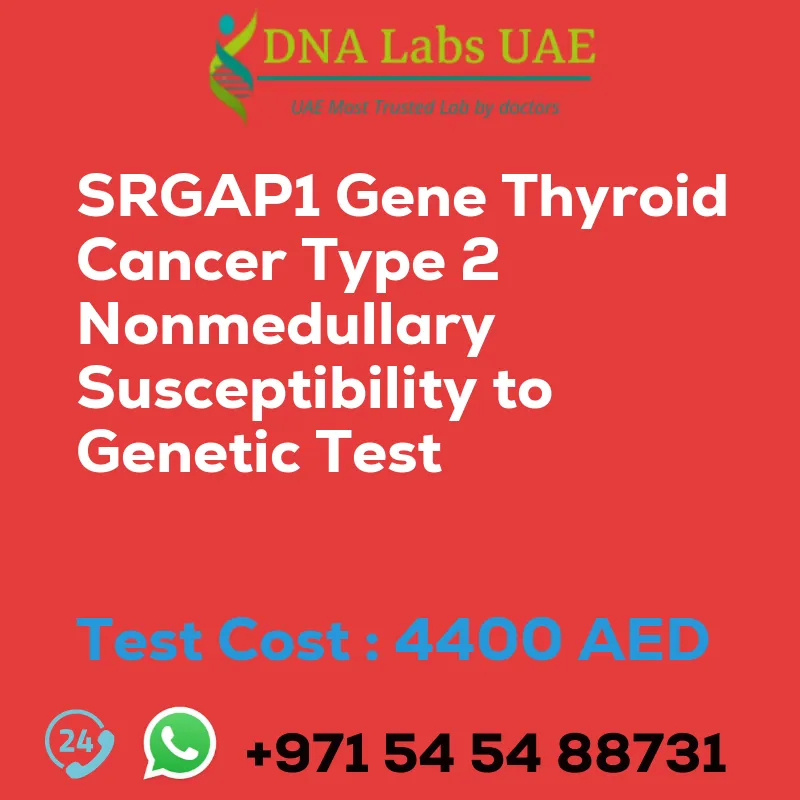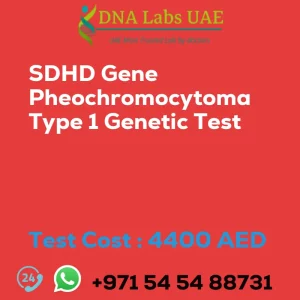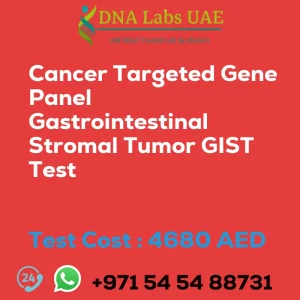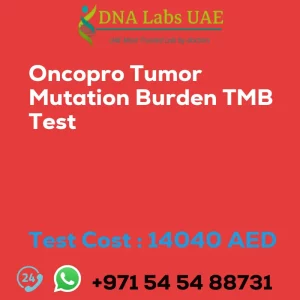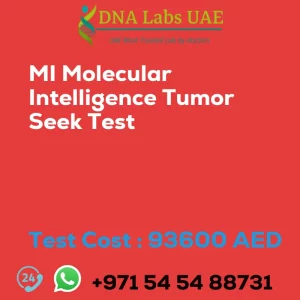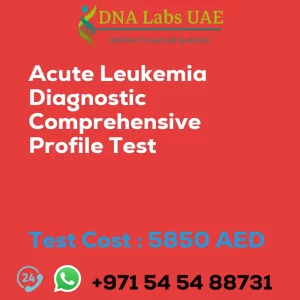SRGAP1 Gene Thyroid Cancer Type 2 Nonmedullary Susceptibility to Genetic Test
At DNA Labs UAE, we offer genetic testing services to assess the susceptibility of thyroid cancer type 2 nonmedullary associated with the SRGAP1 gene. This test is designed to provide valuable insights into your genetic predisposition to thyroid cancer and help in early diagnosis and prevention.
Test Details
The SRGAP1 gene, although primarily associated with brain development and neurodevelopmental disorders, has not been typically linked to thyroid cancer. However, our advanced NGS (Next-Generation Sequencing) technology allows us to analyze multiple genes simultaneously, including SRGAP1, to identify any potential genetic mutations associated with thyroid cancer.
Symptoms and Diagnosis
Thyroid cancer is a complex disease influenced by both genetic and environmental factors. While SRGAP1 is not a commonly known gene associated with thyroid cancer, other genes such as BRAF, RET, and TERT are more commonly studied in relation to this disease. Therefore, if you have concerns about your risk of developing thyroid cancer or have a family history of the disease, it is advisable to consult with an oncologist or genetic counselor who can provide personalized guidance and recommend appropriate genetic testing options.
Test Components and Price
Our SRGAP1 Gene Thyroid Cancer Type 2 Nonmedullary Susceptibility to Genetic Test is priced at 4400.0 AED. The test requires either a blood sample, extracted DNA, or one drop of blood on an FTA card. The results will be delivered within 3 to 4 weeks using our NGS technology.
Genetics Test Department and Doctor
Our Genetics Test Department, led by experienced oncologists, specializes in genetic testing for various diseases, including thyroid cancer. Our team of experts is dedicated to providing accurate and reliable results to assist in diagnosis and treatment decisions.
Pre-Test Information
Prior to undergoing the SRGAP1 Gene Thyroid Cancer Type 2 Nonmedullary Susceptibility to Genetic Test, it is essential to provide the clinical history of the patient. This includes any relevant information about the patient’s family members affected by SRGAP1 Gene Thyroid Cancer Type 2 Nonmedullary. A genetic counseling session may also be conducted to draw a pedigree chart, which helps in understanding the genetic inheritance pattern within the family.
Conclusion
Thyroid cancer is a complex disease with various genetic and environmental factors contributing to its development. While SRGAP1 is not typically associated with thyroid cancer, our NGS genetic test can analyze multiple genes simultaneously to identify potential mutations. For personalized guidance and the most appropriate genetic testing options, it is recommended to consult with a genetic counselor or healthcare professional.
| Test Name | SRGAP1 Gene Thyroid cancer type 2 nonmedullary susceptibility to Genetic Test |
|---|---|
| Components | |
| Price | 4400.0 AED |
| Sample Condition | Blood or Extracted DNA or One drop Blood on FTA Card |
| Report Delivery | 3 to 4 Weeks |
| Method | NGS Technology |
| Test type | Cancer |
| Doctor | Oncologist |
| Test Department: | Genetics |
| Pre Test Information | Clinical History of Patient who is going for SRGAP1 Gene Thyroid cancer type 2, nonmedullary, susceptibility to NGS Genetic DNA Test. A Genetic Counselling session to draw a pedigree chart of family members affected with SRGAP1 Gene Thyroid cancer type 2, nonmedullary, susceptibility to NGS Genetic DNA Test gene SRGAP1 |
| Test Details |
The SRGAP1 gene is not typically associated with thyroid cancer. It is a gene involved in brain development and has been implicated in neurodevelopmental disorders such as intellectual disability and autism spectrum disorders. Thyroid cancer is a complex disease with multiple genetic and environmental factors contributing to its development. While there are several genes that have been identified as playing a role in thyroid cancer susceptibility, SRGAP1 is not one of them. NGS (Next-Generation Sequencing) genetic tests are used to analyze multiple genes simultaneously and can be helpful in identifying genetic mutations associated with various diseases, including thyroid cancer. However, when it comes to thyroid cancer, the focus is usually on genes such as BRAF, RET, and TERT, among others. If you are concerned about your risk of developing thyroid cancer or have a family history of the disease, it is recommended to consult with a genetic counselor or healthcare professional who can provide personalized guidance and determine the most appropriate genetic testing options for you. |

